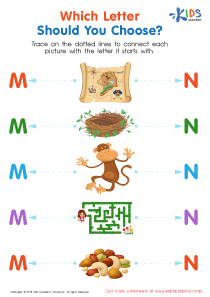Lowercase/Small Letters Worksheets for Ages 5-7
23 filtered results
-
From - To
Discover our engaging Lowercase/Small Letters Worksheets for ages 5-7! Designed to make early literacy fun, these worksheets help young learners master lowercase letter recognition and handwriting skills. With colorful illustrations, interactive tracing activities, and playful exercises, kids build essential phonics and motor coordination abilities. Perfect for both classroom and at-home practice, our printable resources support individualized learning pace and build confidence in writing. Set the foundation for your child's reading and writing journey with these expertly crafted worksheets from Kids Academy and watch them thrive!
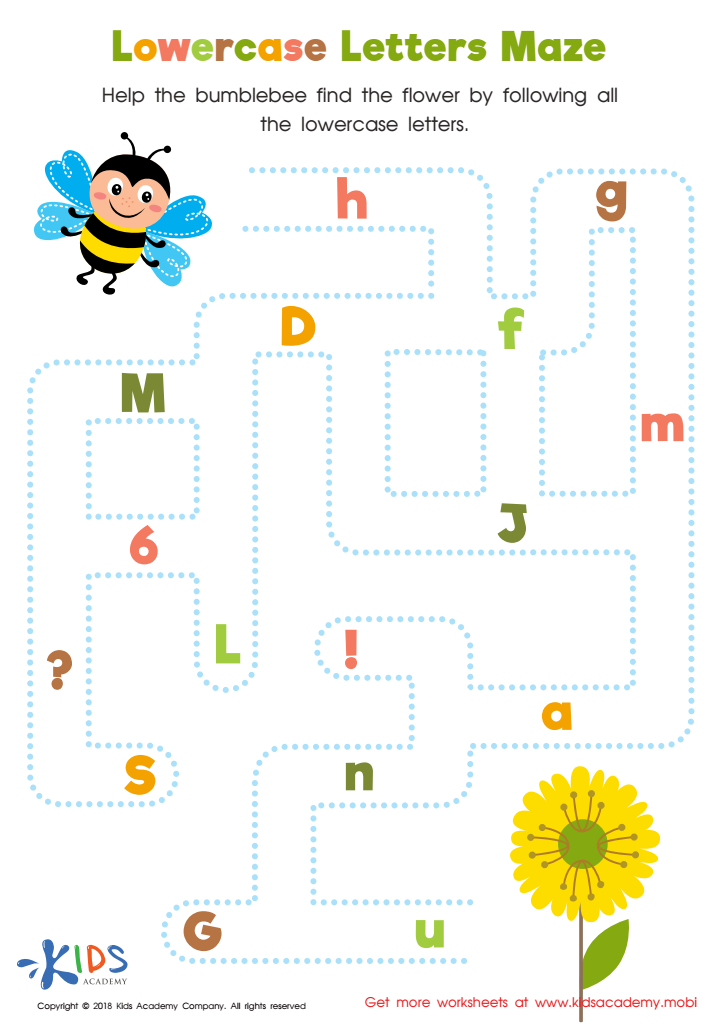

Lowercase Letters Maze Worksheet
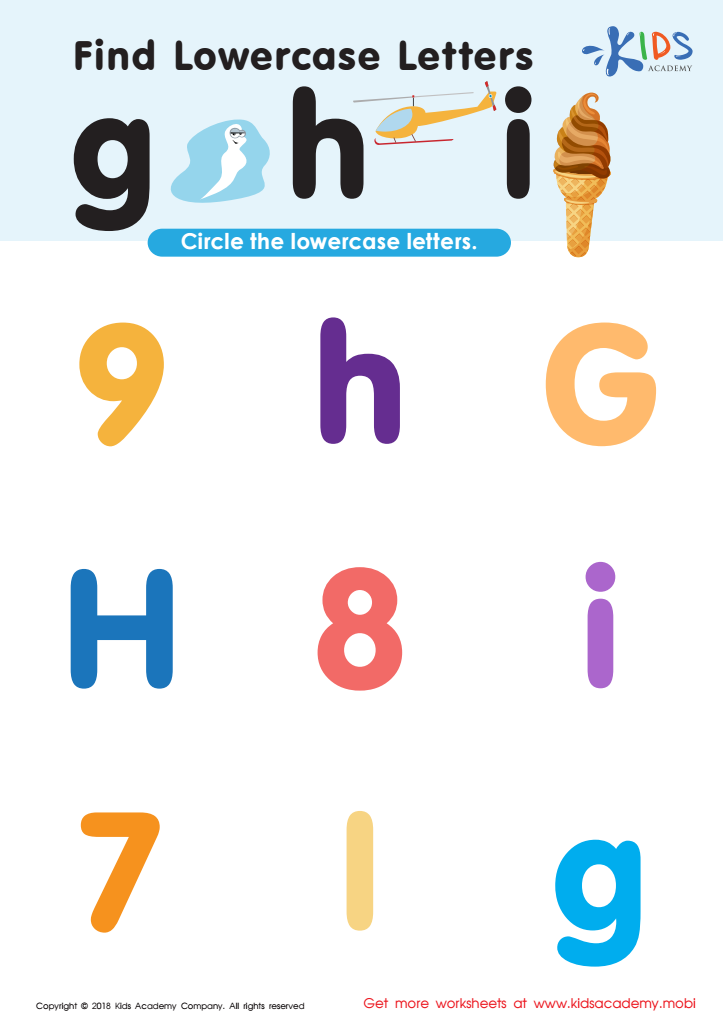

Find Lowercase Letters g h i Worksheet
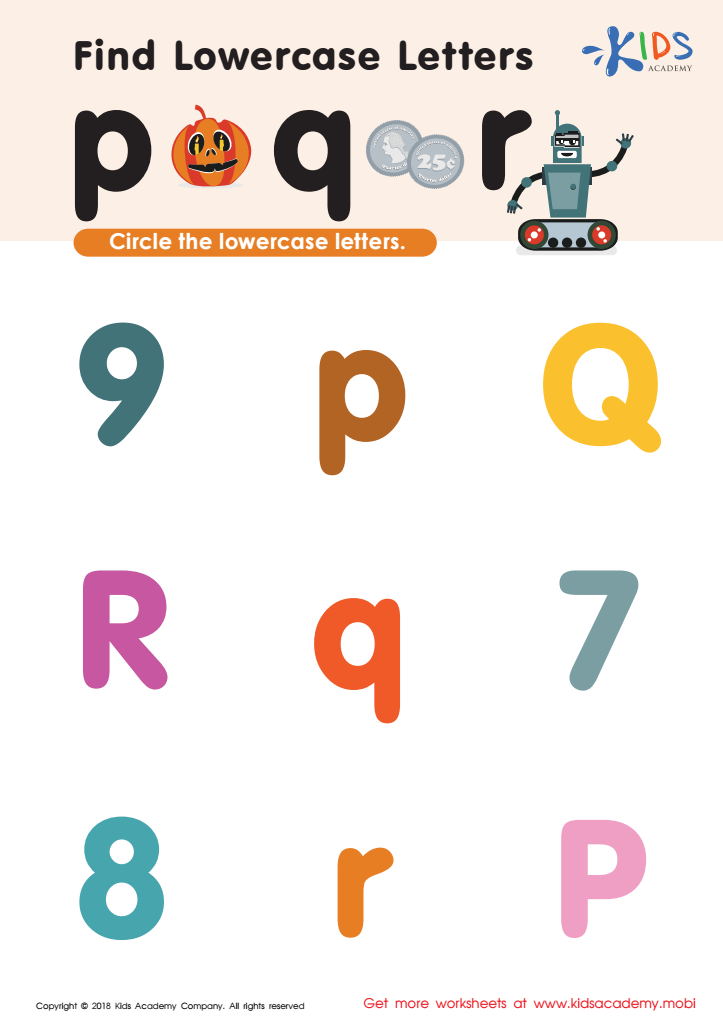

Find lowercase Letters p q r Worksheet
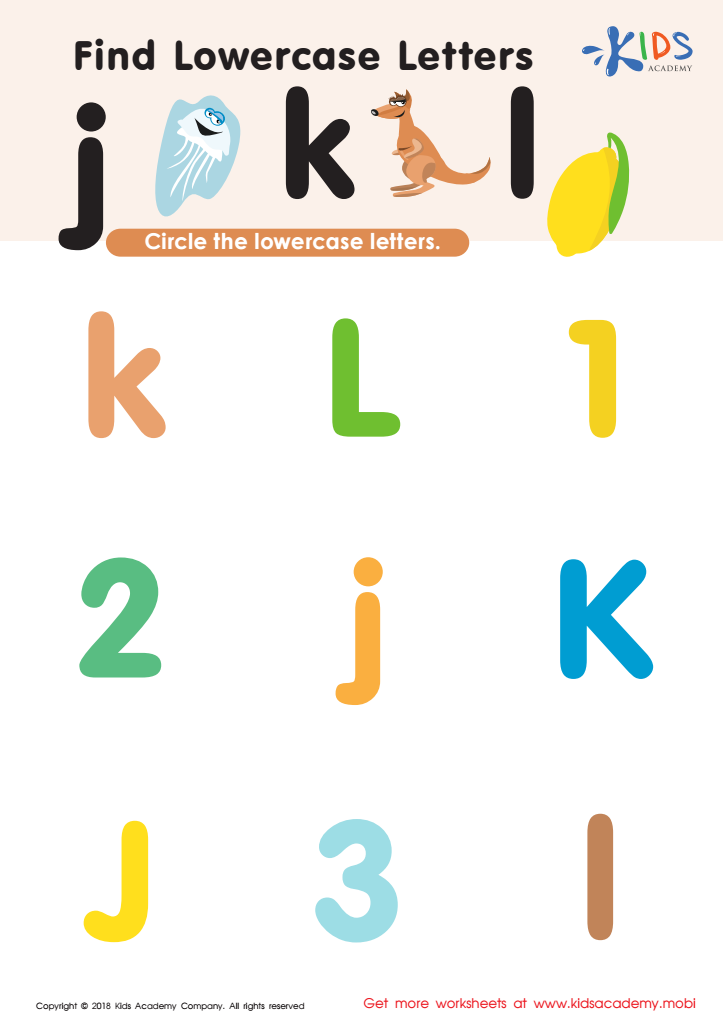

Find Lowercase Letters j k l Worksheet
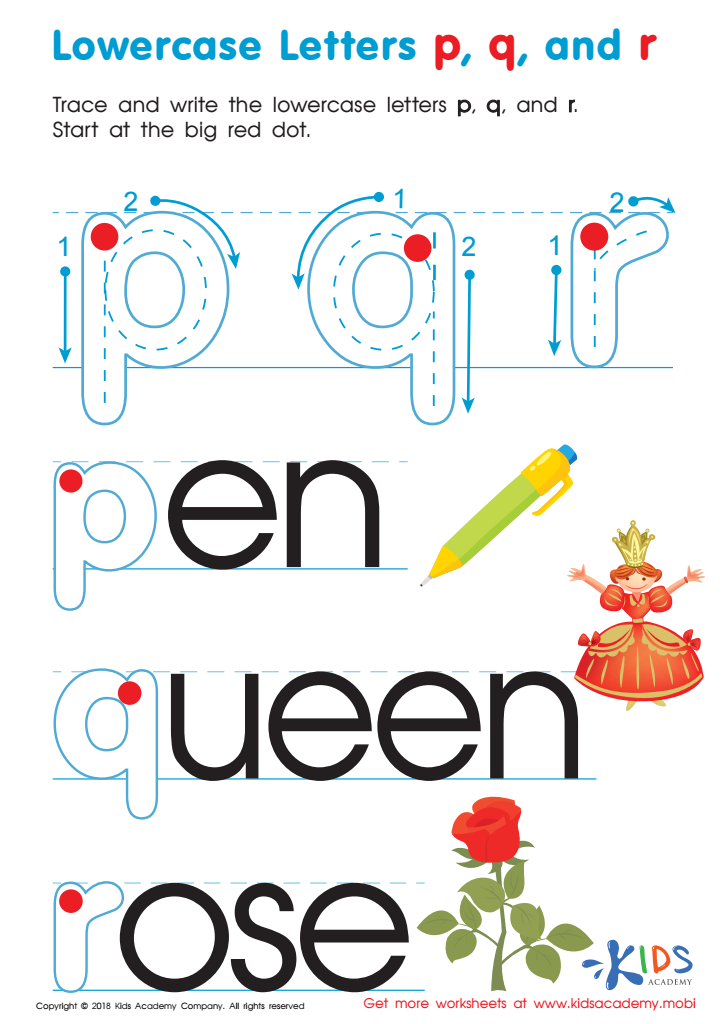

Lowercase Letters p q r Worksheet
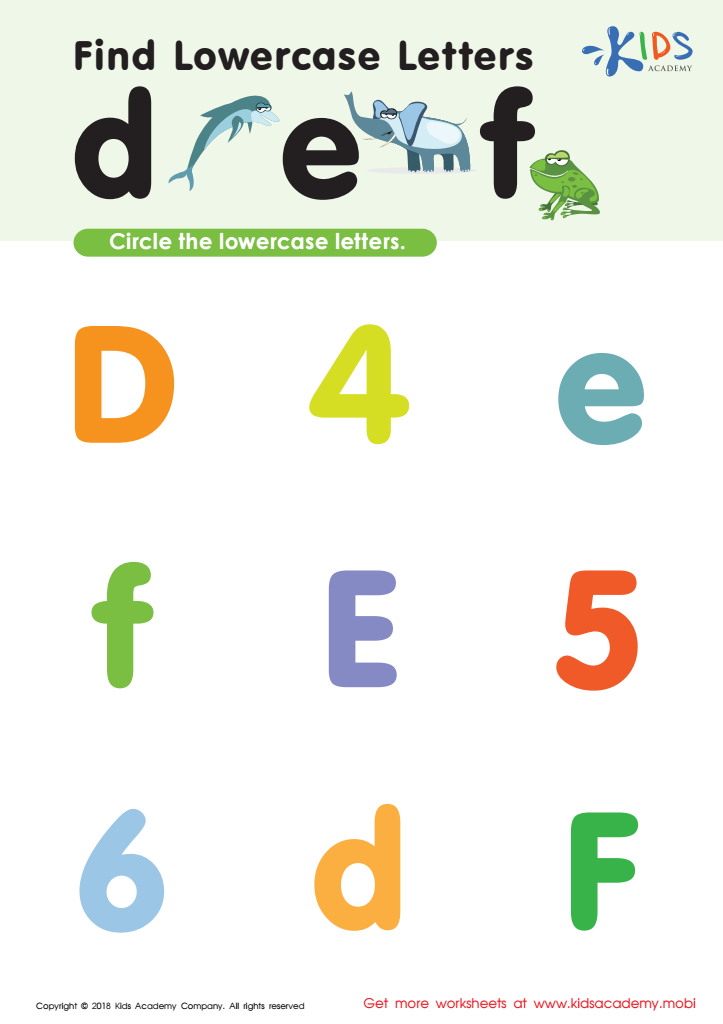

Find Lowercase Letters d e f Worksheet
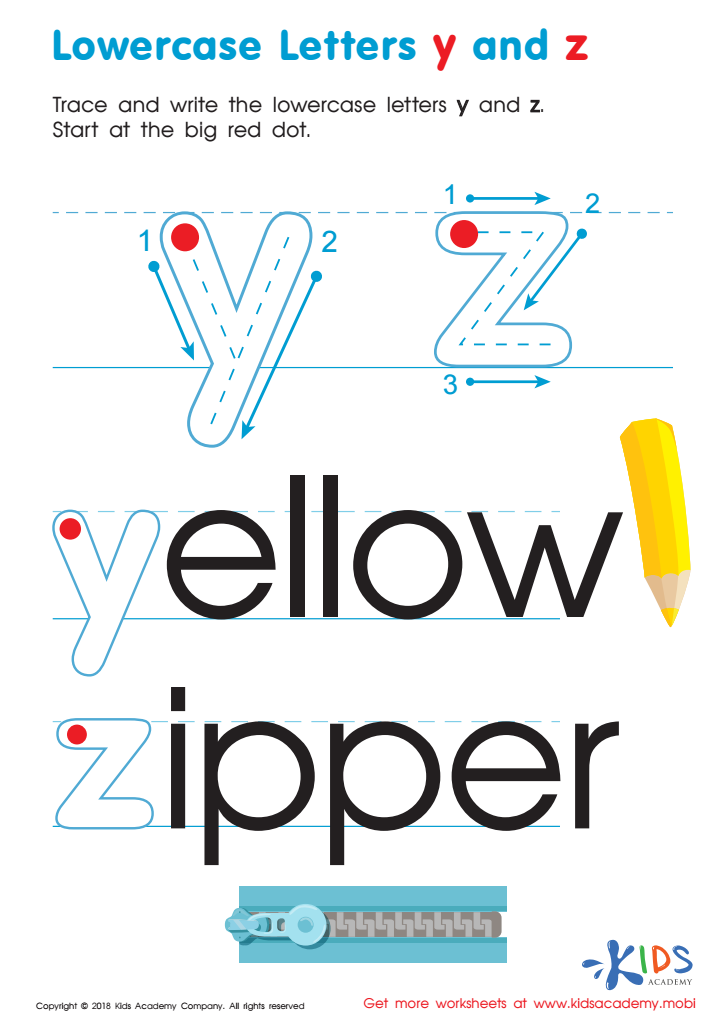

Lowercase Letters y z Worksheet
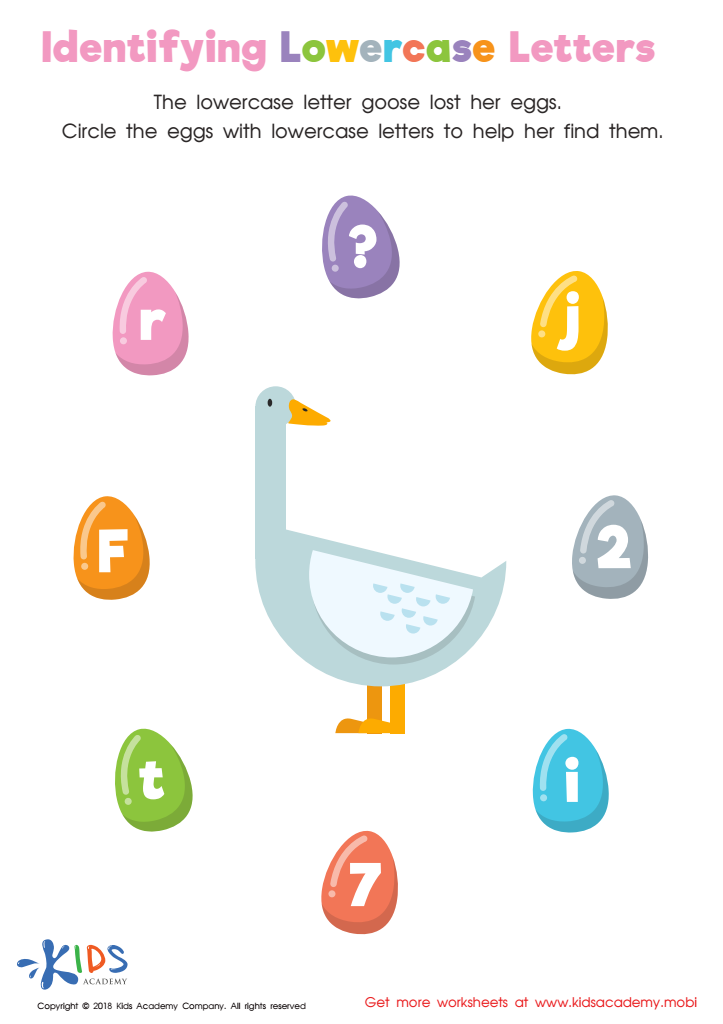

Identifying Lowercase Letters Worksheet
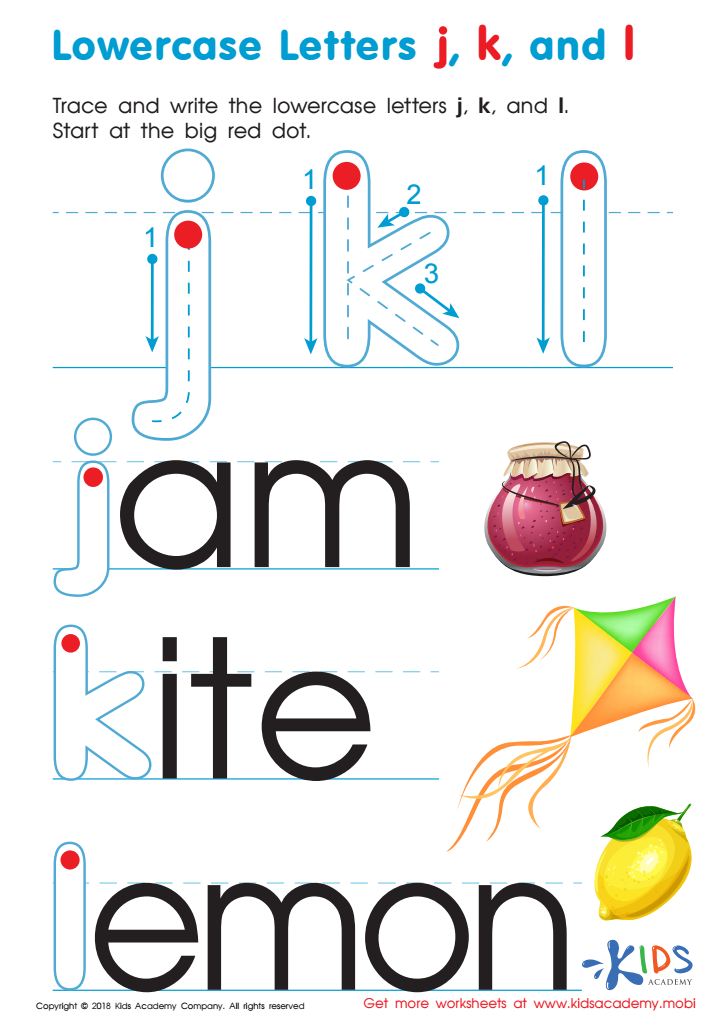

Lowercase Letters j k l Worksheet
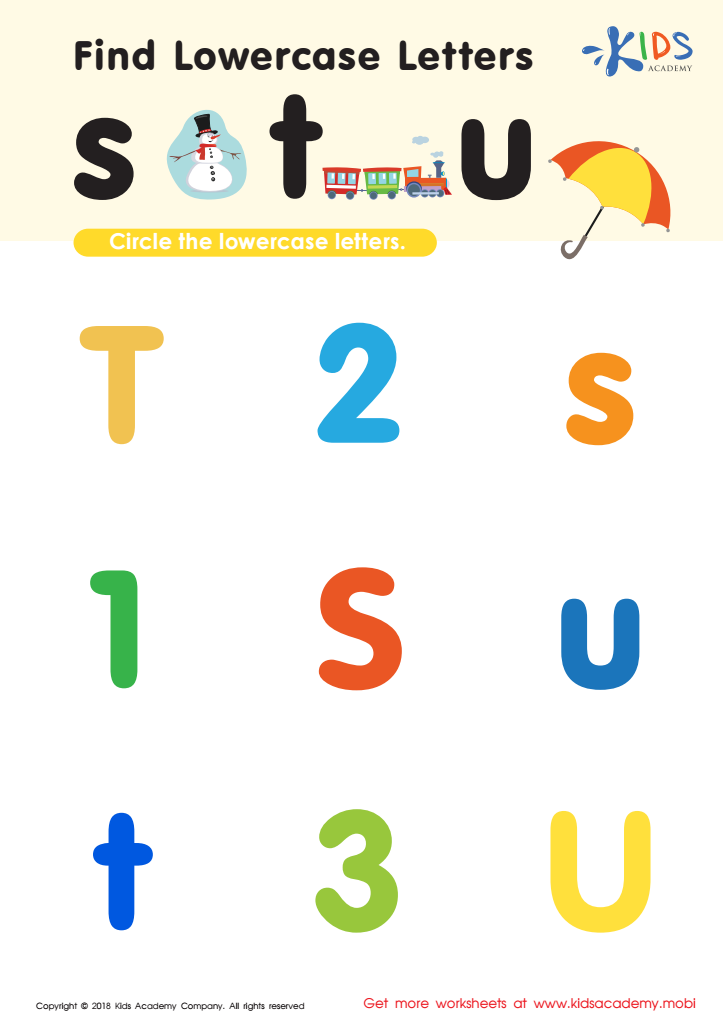

Find lowercase Letters s t u Worksheet
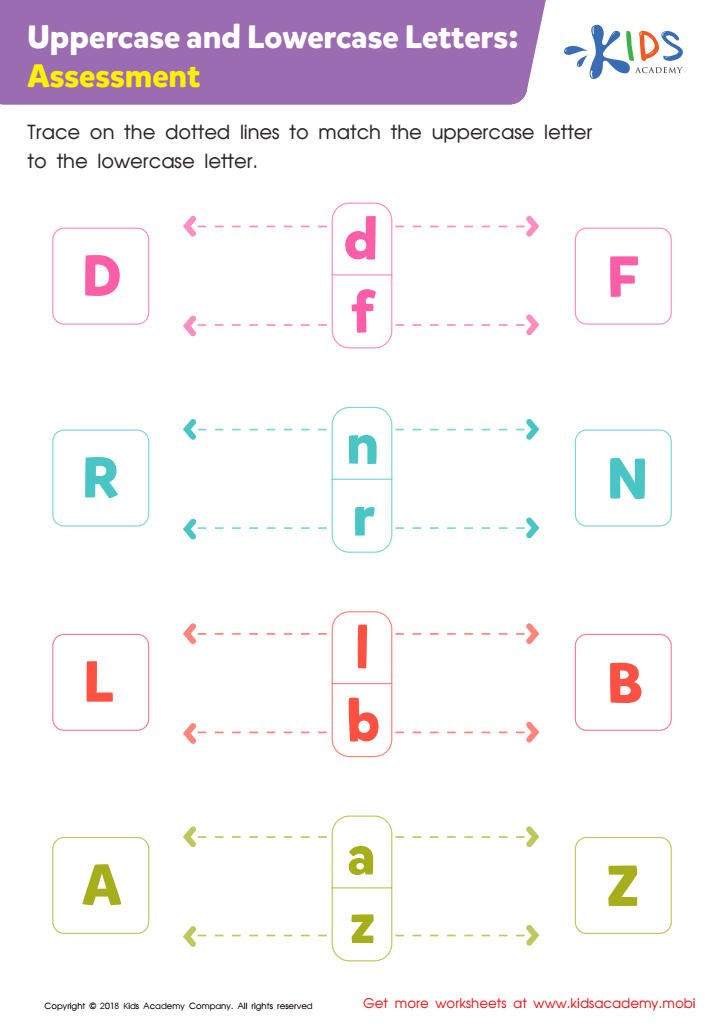

Uppercase and Lowercase Letters: Assessment Worksheet
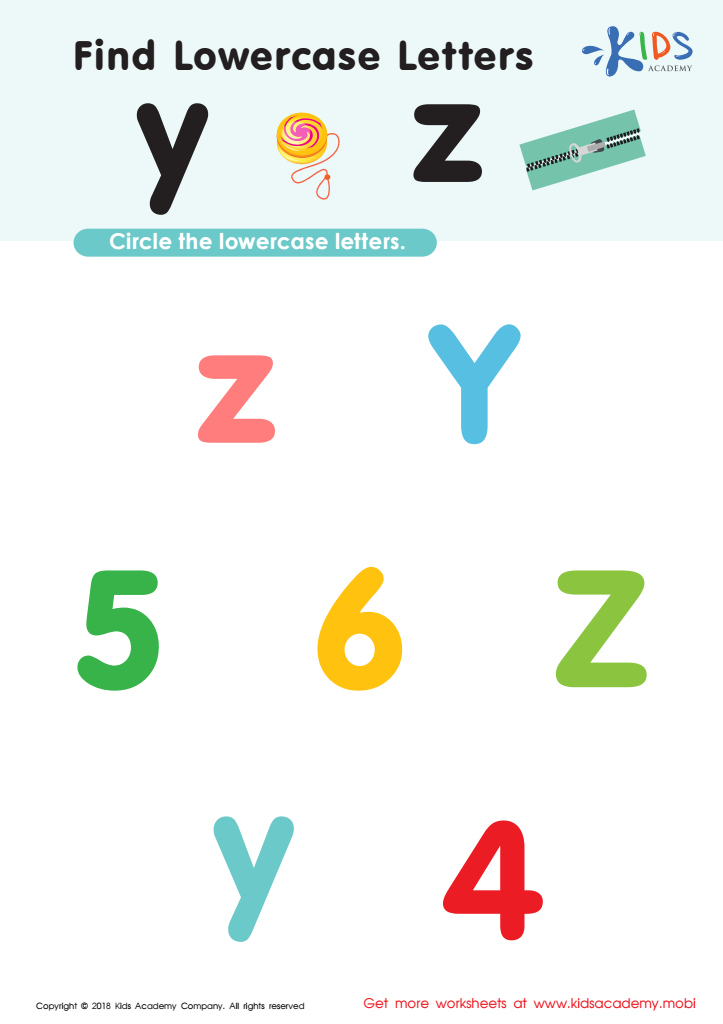

Find Lowercase Letters y z Worksheet
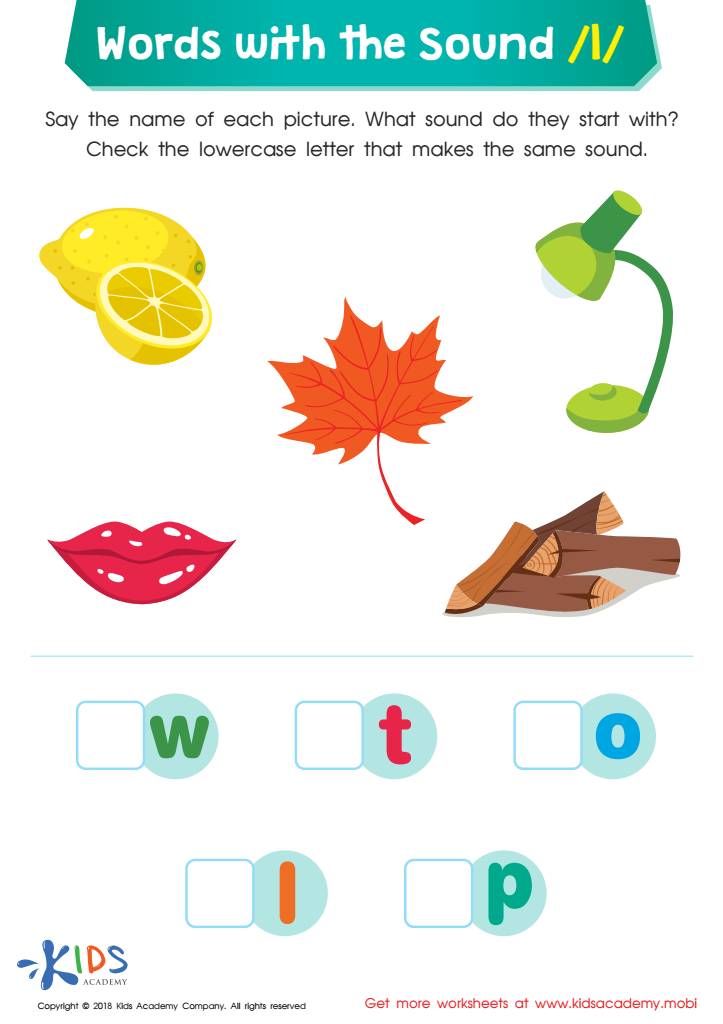

Words with Sound L Reading Worksheet
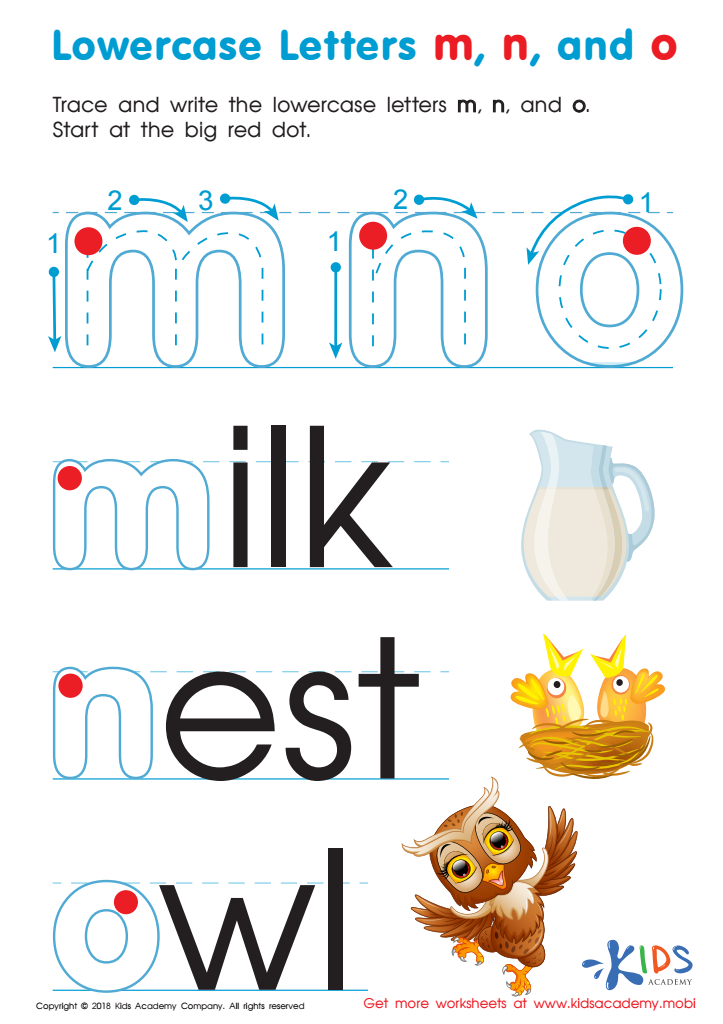

Lowercase Letters m n o Worksheet
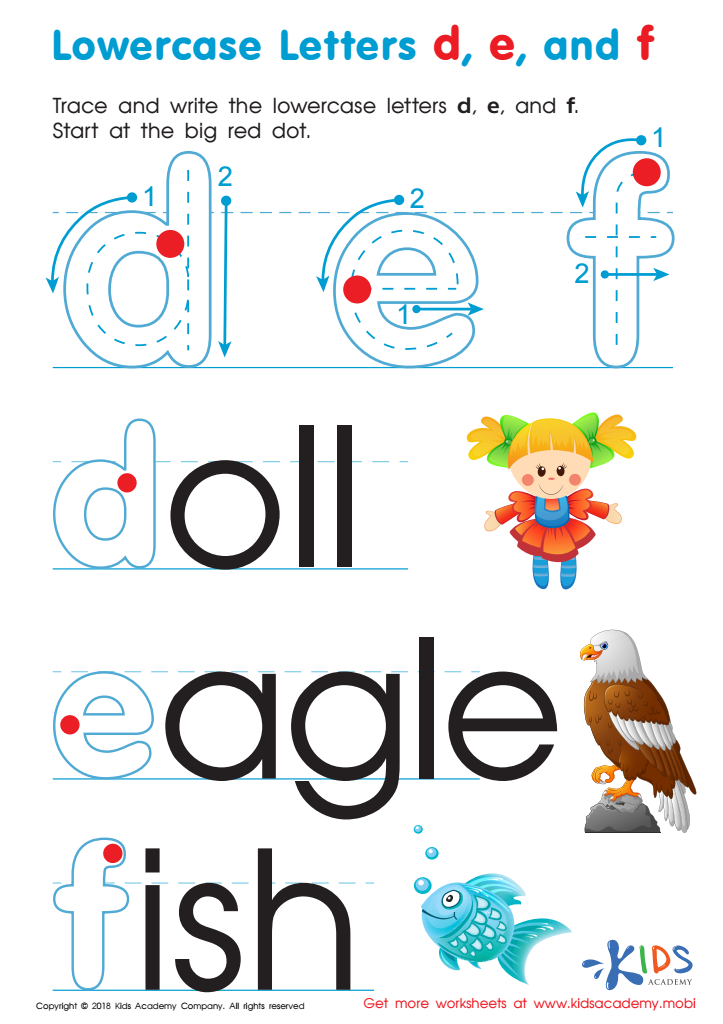

Lowercase Letters d e f Worksheet
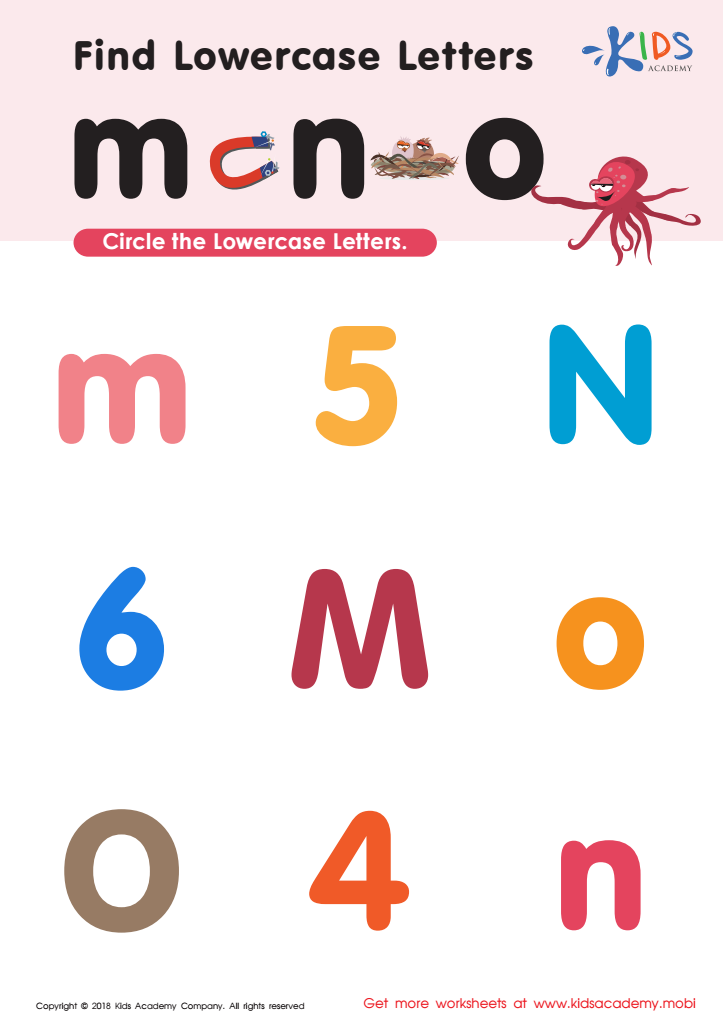

Find Lowercase Letters m n o Worksheet
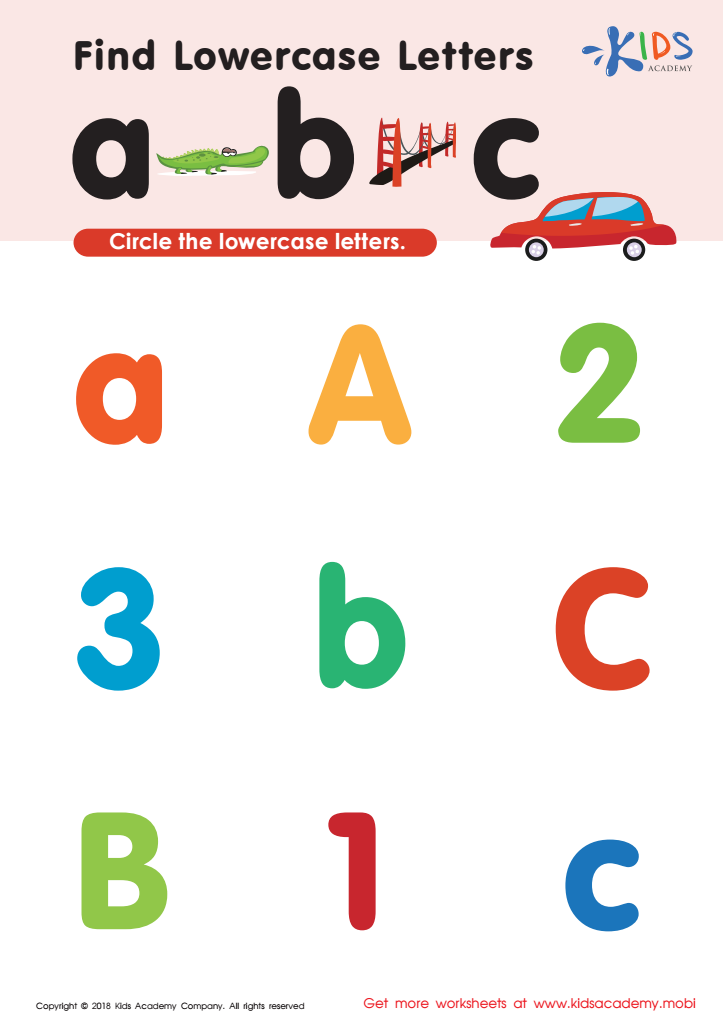

Find lowercase letters a b c Worksheet
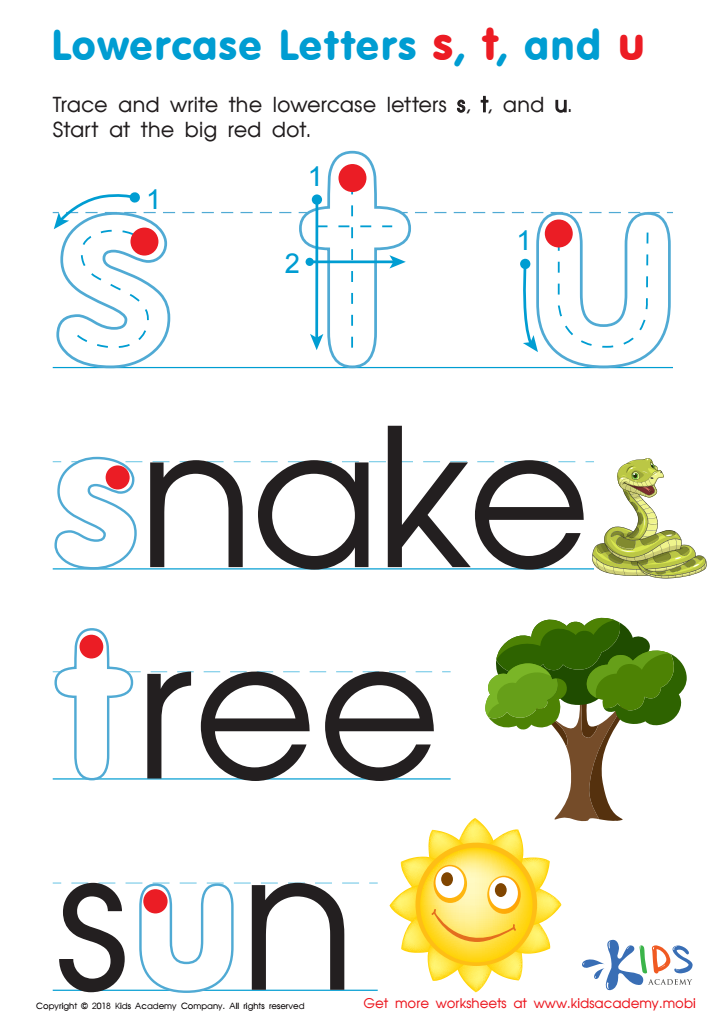

Lowercase Letters s t u Worksheet
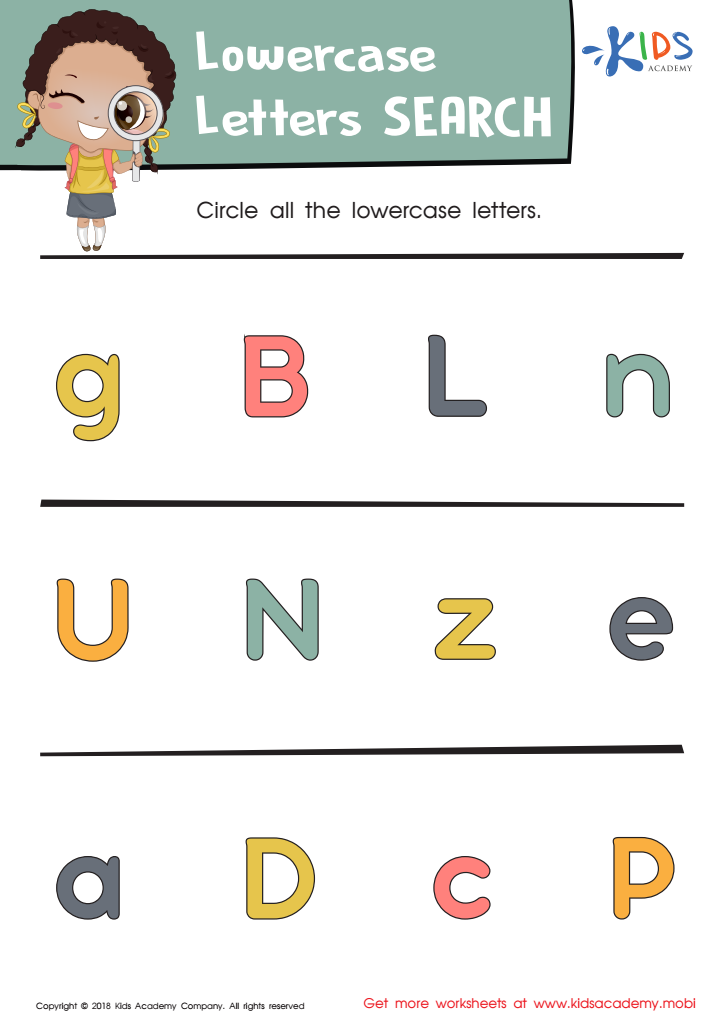

Lowercase Letters Search: Assessment Worksheet
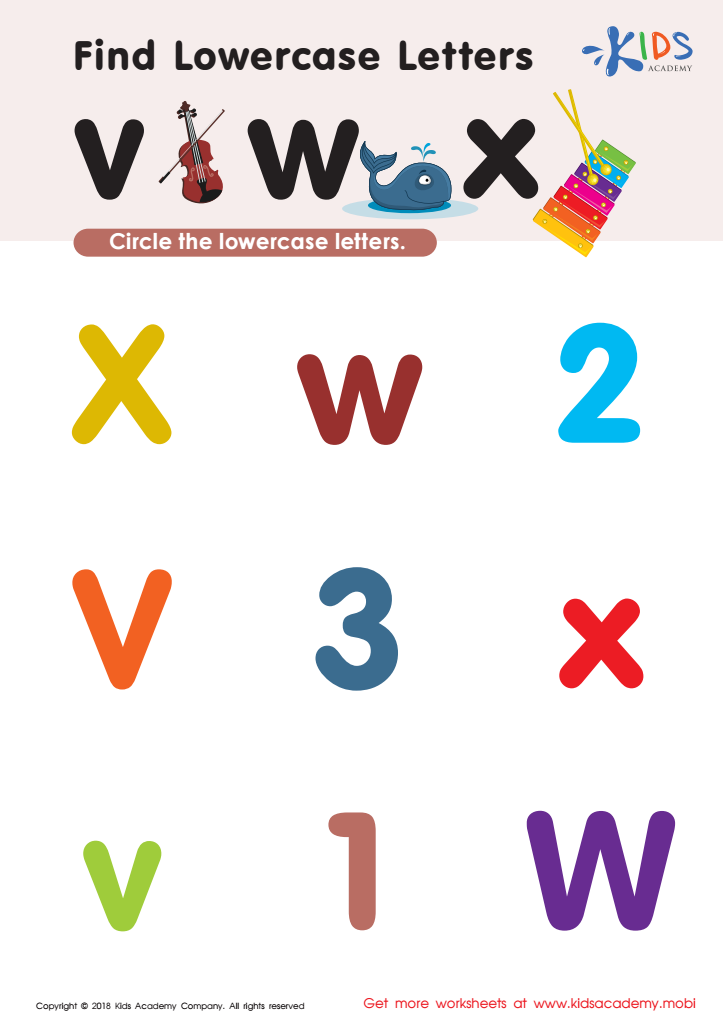

Find Lowercase Letters v w x Worksheet
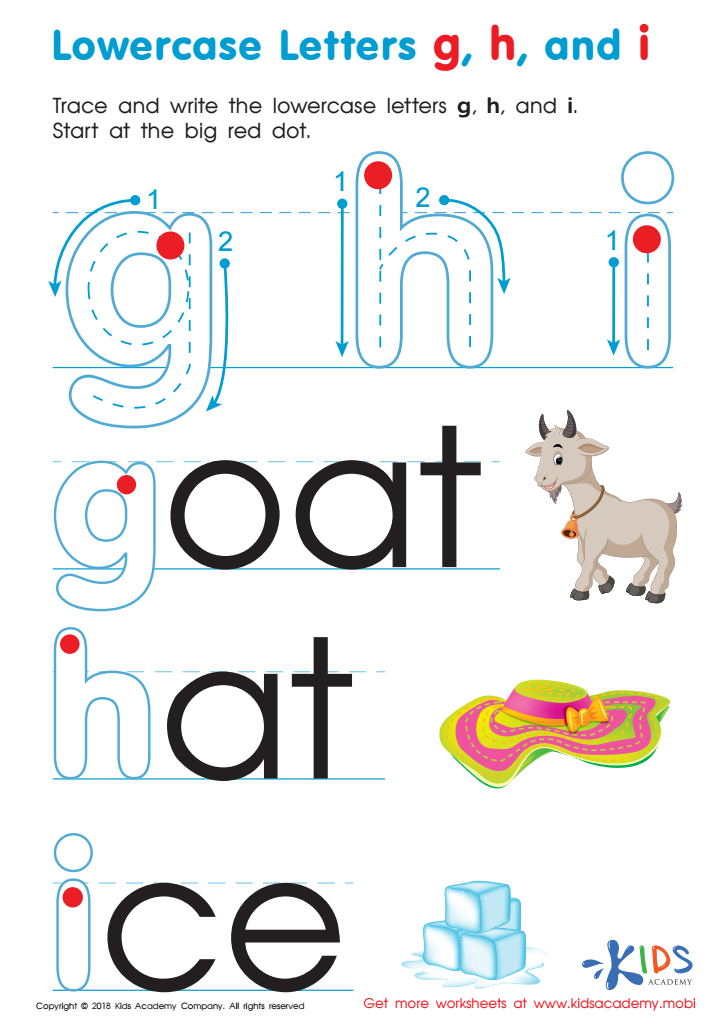

Lowercase Letters g h i Worksheet
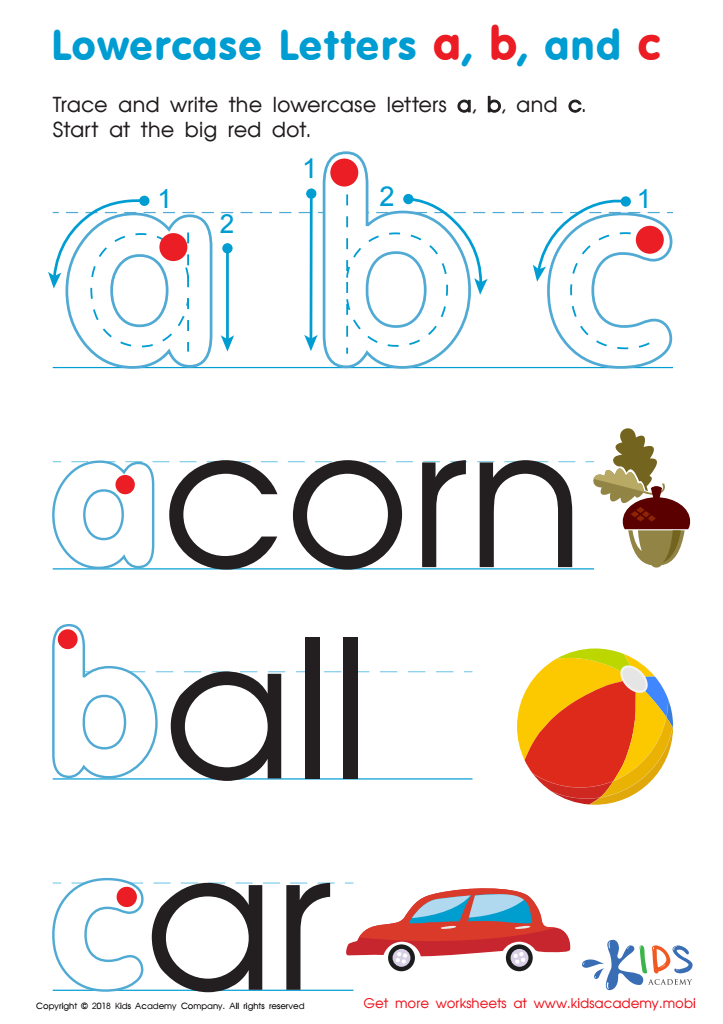

Lowercase Letters a b c Worksheet
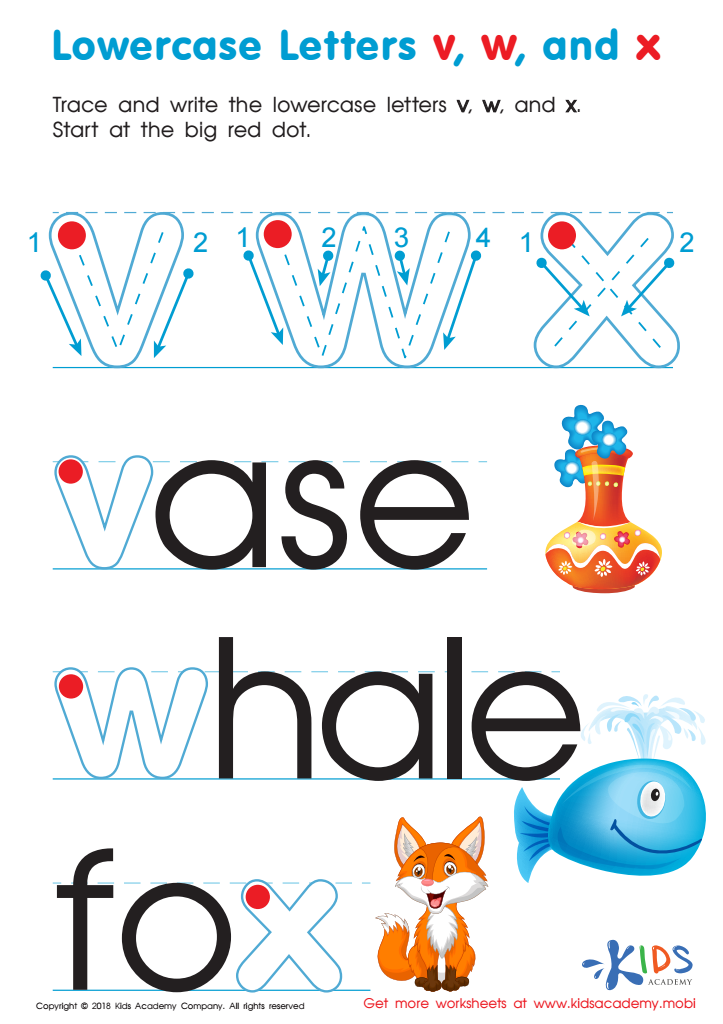

Lowercase Letters v w x Worksheet
When teaching young children aged 5-7, it’s crucial for parents and teachers to emphasize the importance of lowercase or small letters. At this developmental stage, children are beginning to acquire foundational literacy skills that are essential for their future academic success.
One primary reason is that the majority of written text is composed of lowercase letters. Books, instructions, and even most digital content rely predominantly on small letters rather than uppercase. Thus, familiarizing children with lowercase letters enables them to effortlessly read the wide variety of materials they encounter in daily life.
Secondly, learning lowercase letters helps cement the association between letters and sounds, facilitating phonetic reading skills. Lowercase letters often appear where children experience natural pauses in speech, making it easier for them to comprehend context and meaning.
Moreover, understanding the distinction between uppercase and lowercase letters is a key aspect of writing. Mastery of small letters allows children to create correctly punctuated sentences, enhancing their written communication skills. Early competence in lowercase writing aids in developing fine motor skills, which are critical for precision in other academic areas, such as math or art.
In essence, a focus on lowercase letters equips children not just for immediate literacy tasks but sets a strong foundation for ongoing academic growth and practical competence in everyday life.

 Assign to My Students
Assign to My Students








